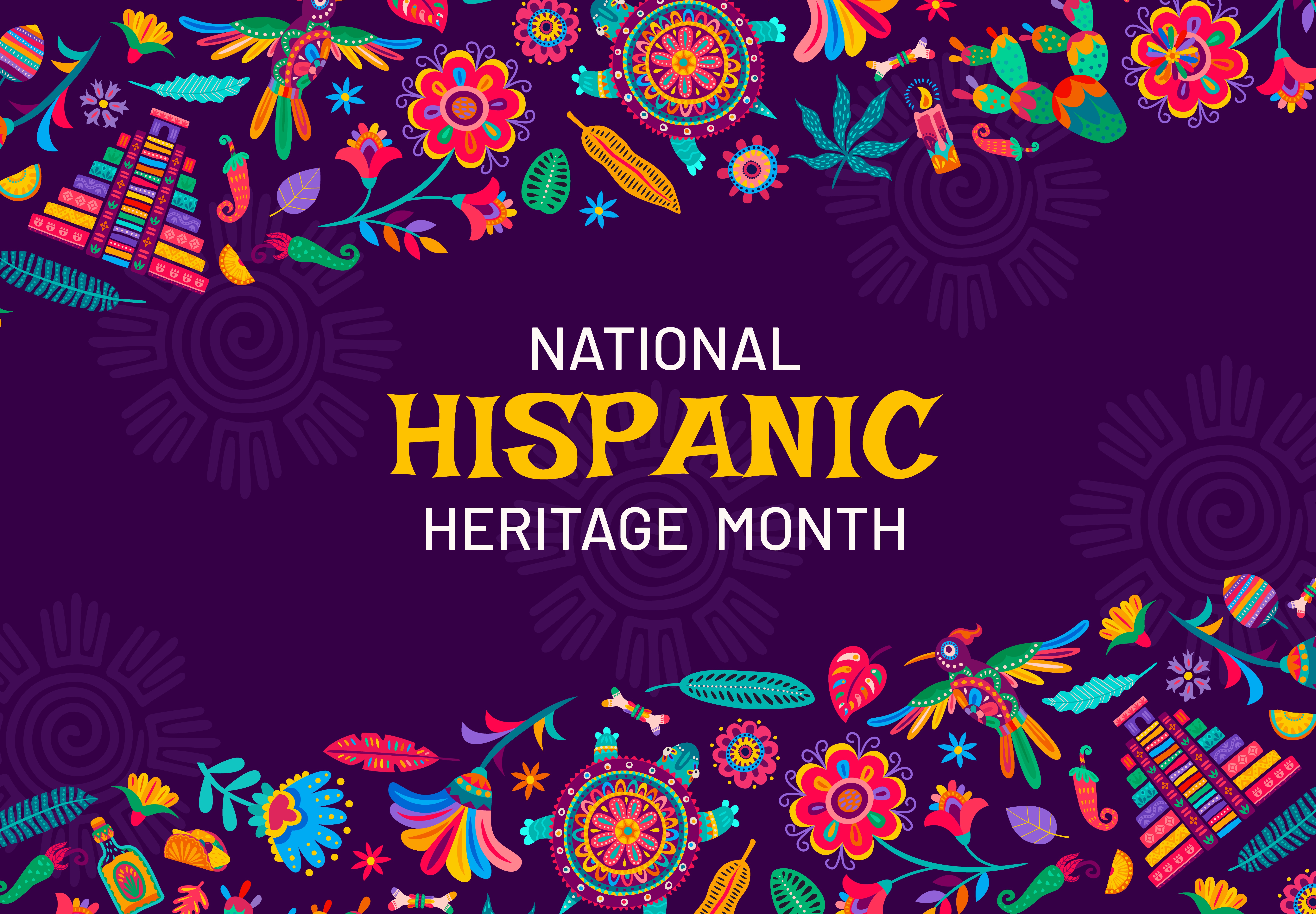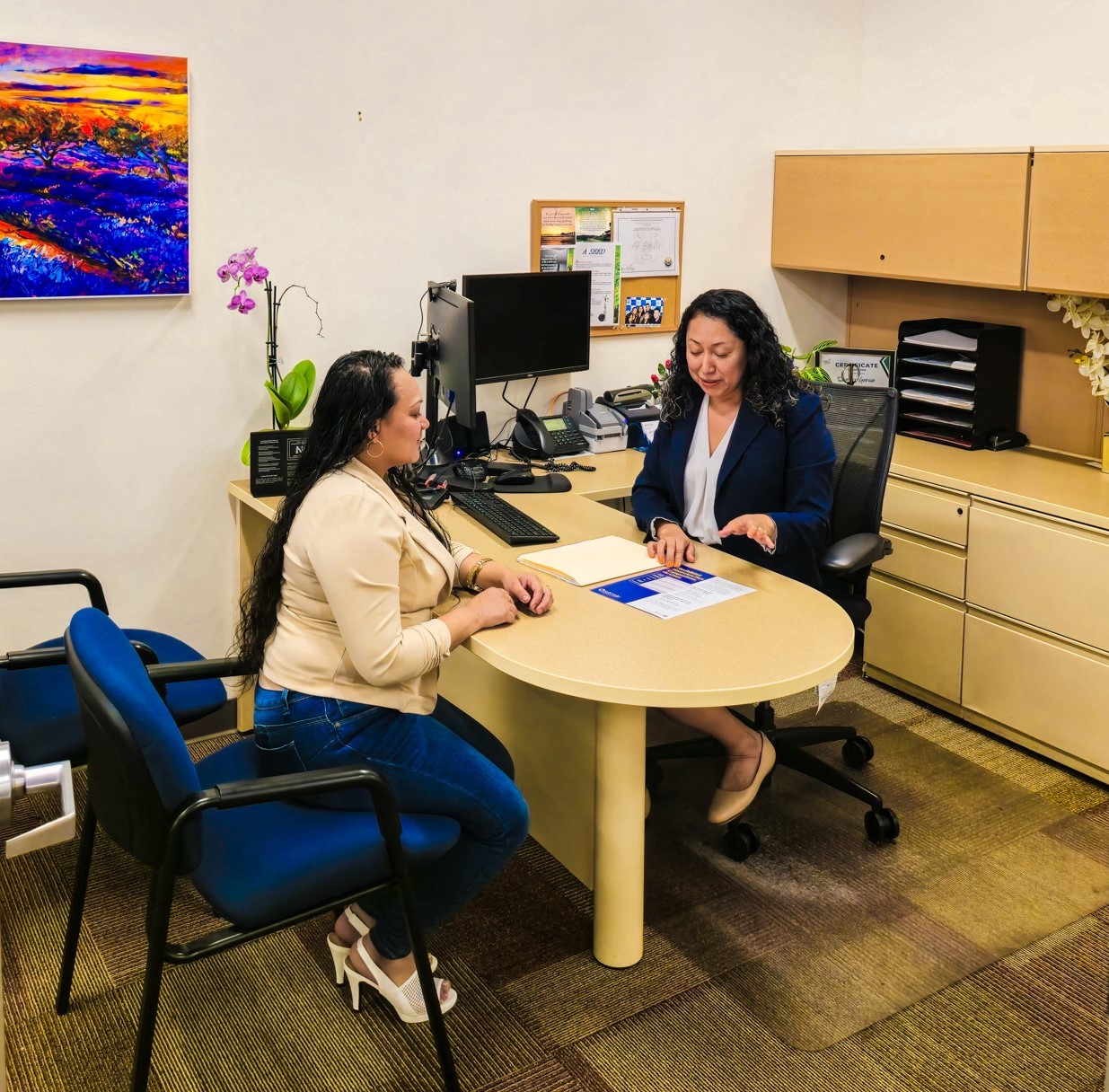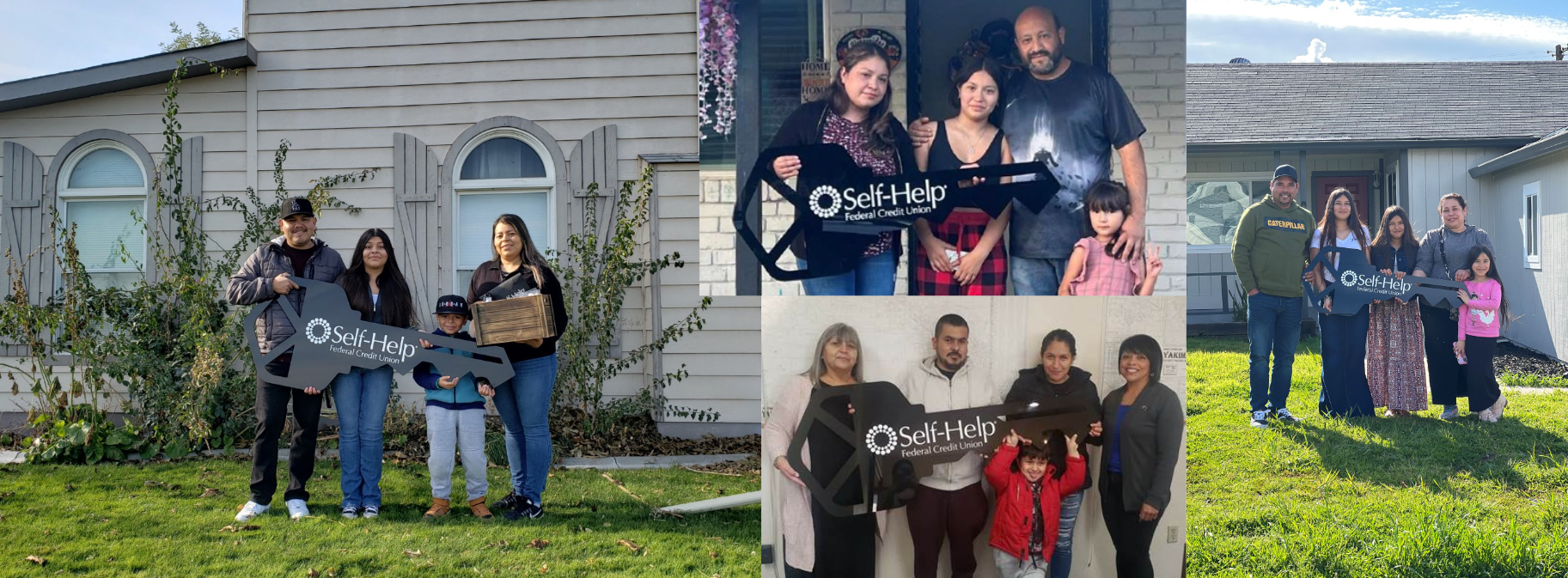
September 15-October 15 is Latino/Hispanic Heritage Month, which is a time to honor the history, culture, and contributions of Latino/Hispanic American communities. September 15 was chosen as the start of this month-long celebration because it coincides with the Independence Day celebrations of five Latin American countries (Costa Rica, El Salvador, Guatemala, Honduras, and Nicaragua).
In honor of this month, Self-Help is focusing on how we can support economic opportunity for our Latino/Hispanic communities. For this blog post, we asked a handful of the incredible Latino/Hispanic experts at Self-Help: What is one unique financial challenge and/or opportunity that you have observed within the Latino/Hispanic community, and what advice would you offer to help navigate this?
We are excited to share their responses with you!
Building Credit
“One unique financial challenge within the Latino/Hispanic community is greater awareness and understanding of credit reports and their impact on financial opportunities. Many individuals may need help to fully grasp how to monitor, improve, and leverage their credit effectively....
My advice would be to prioritize building a solid credit history by regularly checking your credit report, addressing any inaccuracies, and making consistent payments on debts. For self-employed individuals, it's essential to maintain detailed financial records and accurately report all income, even if it means paying more taxes. This transparency can significantly improve your ability to secure loans, mortgages, and other financial products, ultimately leading to greater financial stability and growth.”
- Jorge Lopez Colunga – Business Development Officer, Commerical Lending
According to the CFPB, over a quarter of Latino/Hispanic consumers are either credit invisible (meaning that they do not have a credit history) or their credit is unscorable (meaning they lack recent credit history, and their credit records can’t be scored).
If you are in this position, or if you’re just looking to improve your credit, luckily, there are resources available. Here are a few options to help you on your credit-building journey:
- Credit Report - Review your free credit report at annualcreditreport.com. This won’t give you your score, but it will allow you to check what has been reported by creditors and address inaccuracies, as Jorge mentioned.
- Credit coaching - Self-Help offers free financial coaching to members, which includes FICO® credit coaching for anyone who is looking to better understand their credit score and get personalized suggestions to improve it.
- Credit builder loans – these loans are exactly what they sound like – they help you build credit. Paying off the loan consistently allows an easy opportunity to build credit, and once it’s paid off, you get the money along with the accumulated savings interest.
Financial Literacy
“Latino families can feel the pressure of supporting multi-generations, they sometimes lack access to financial literacy and affordable/safe financial services. These systemic barriers along with cultural barriers contribute to the lack of access to homeownership, hence generational wealth. Giving Latino families the opportunity to access all of the above can change everything! Start with financial literacy as a foundation to a successful financial journey and they will reach financial freedom.”
- Maria Ramos-Cuaya – Executive Staff
Access to financial education is an extremely important aspect of economic opportunity, and these resources are often lacking in underrepresented communities. Many Community Development Financial Institutions (CDFIs) like Self-Help are dedicated to providing financial education, particularly for these communities. At Self-Help, we offer free Financial Coaching for members as well as a partnership with GreenPath to provide support and resources to anyone in need of financial guidance and education on a wide range of topics to meet your personal financial goals.
Financial coaches can work with you to: - Start a savings habit
- Build credit
- Pay down debt
- Qualify for a loan
- Reach your financial goals!
| 
Self-Help member Leily Flores Funes meeting with their financial coach, Siomara Garcia, in San Jose, CA. |
Taxes
“As many of our Latin people are self-employed, I see a big challenge when they are reporting taxes. The majority of them don't have the knowledge on this and usually the taxes are done incorrectly because instead of using a good accountant, they just go to a place where [they] just file taxes [without providing] good advice. I try to explain to them the importance of contacting a good accountant where they can explain what their financial goals are, and they can prepare the taxes in the correct way. I usually love to connect with local accountant firms and create a source of referral with them to help that specific self-employed sector to achieve their plans.”
- Geannina Hiraldo – Director of Mortgage Origination
Taxes can be complicated for anyone, but they are especially difficult to navigate when you are self-employed. How you file taxes when you’re self-employed is important, as there are also many ways to get tax breaks and deductions, which you'll want to take advantage of. Some of these breaks and deductions include contributions to your retirement plans, any expenses relating to business use of your home, business use of your vehicle, and even depreciation of some property and equipment you purchase.
As Geannina mentioned, working with a good accountant is the best way to get the most out of your taxes, and it can save you time, stress, and potentially even money. You can start by reaching out to the member service representatives at your local Self-Help branch to find out if they have any local recommendations.
When looking for a good Certified Public Accountant (CPA), here are a few tips from TurboTax:
- Ask about their specialization – You'll want to find someone who specializes in individual income tax returns.
- Make sure they’re legitimate – Verify their identification number (PTIN) and look up their license.
- Ask for advice – As Geannina mentioned, you want a CPA who will not just file your return, but also offer year-round tax planning advice to maximize your tax savings in the future.
- Consider their experience and services – They should be comfortable e-filing, signing your tax return, and representing you before the IRS for any tax matter related to your return.
- Ask for referrals from clients – This can be the best way to find the right CPA for you.
- Ask about their fees – How do they charge, and do their fees include both federal and state returns? Avoid CPAs who charge a percentage of your tax refund.
Homeownership

Self-Help mortgage borrowers
“My personal experience with servicing the Latino/Hispanic community has been inspiring.... Despite high borrowing cost and low inventory, our members have managed to pivot and adapt.... For a loan officer, it’s fulfilling and very rewarding. Not only are we directly impacting generational wealth building. Oftentimes, we are using the [first-time homebuyer] grant to reduce principal, buy down rate points, or simply save our members thousands of hard-earned dollars!... The opportunity to access a forgivable grant, which does not impact rate, despite immigration status, is amazing!
If I could identify a financial challenge, it would be property tax costs. These costs can be a bit daunting to anyone who’s a homeowner. Understanding when your home’s value is reassessed could trigger a higher mortgage payment is worrisome.... Being transparent with our members, providing tools, and resources is important. The advice I would share is aligning with [Nonprofit Organizations] who specialize in Housing. These non-profits specialize in pre-purchase and post-purchase education and offer direct resources. Financial wellness is key to sustain homeownership. When learning in a group setting, it creates community and a sense of security. Knowing there are experts who are willing and wanting to roll up their sleeves and assist. Just like me, and my colleagues at SHFCU!”
- Priscilla Aguero – Mortgage Loan Officer
Understanding the costs associated with homeownership doesn’t stop once the sale is finalized. There are many things that homeowners should be prepared for, which is why working with a mortgage loan officer with your best interests in mind who will be honest about what you can really afford is important. A few post-purchase expenses outside of your expected mortgage may include:
- Anything in need of updating or addressing – This can include new furniture, appliances that you’d like to upgrade or that need to be replaced, pest control to prevent or address infestation, and home improvement like painting or renovating.
- Property taxes – As Priscilla mentioned, these costs can be a bit overwhelming. Property taxes are often the second most significant expense after your mortgage and may fluctuate annually.
- Homeowners insurance – Having homeowners insurance is an important way to protect yourself in the event of damage, destruction, or personal liability related to your property.
- HOA dues – Some neighborhoods have Homeowner’s Associations, which often collect fees that go toward the upkeep of your community. It’s important to make sure you know what they are from the get-go.
- Lawn care – Not only does lawn care help maintain curb appeal, but it can also be mandated due to safety and pest concerns. If you’re going to have a lawn, you may need to purchase tools like a mower or factor in the cost to hire a weekly service.
At Self-Help, our mortgage loan officers are dedicated to your economic wellbeing, which means they are here to educate you and help you make the best financial decision for your future. If you’re interested in buying a home or refinancing, learn more about our home loans.
You can also reach out to our financial coaches for guidance or connect with a nonprofit organization like Family Housing Advisory Services, which offers a variety of homeownership-related workshops, including post-purchase education.